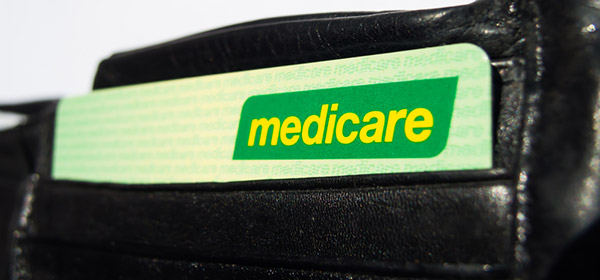Deciding between private health insurance and relying on the public health system mainly comes down to what’s covered by both schemes.
Australians young and old are lucky to have access to such a comprehensive public health system. Sure, you may have to wait for specialist services and assistance, but the fact that we do have access to such medical help is one of the reasons we can call Australia ‘the lucky country’.
Medicare covers you for most health and medical services, but there are some things you’ll have to pay for. That’s why it sometimes pays to have a combination of both private health and access to Medicare.
The latest Medicare Benefits Schedule Book released on 1 July 2018, includes the latest gap charges as well as the extra services covered by Medicare. At 1316 pages, it’s a comprehensive document and it contains all the services covered by Medicare.
Suffice to say, it’s a lot to cover, so to speak, but here’s a quick overview.
The Medicare system has three parts: hospital, medical and pharmaceutical.
Hospital
Medicare will cover you for any treatments in a public hospital where you’re treated as a public patient. You’ll not be charged, but you won’t be able to choose when you’re admitted, and your doctor will be appointed by the hospital. And you can be treated as a public patient, even if you have private health cover.
According to www.privatehealth.gov.au, Medicare will not cover you for:
- private patient hospital costs (for example, theatre fees or accommodation)
- medical and hospital costs incurred overseas
- medical and hospital services which are not clinically necessary, or surgery solely for cosmetic reasons
- ambulance services.
Medical
When you visit a doctor outside of hospital, Medicare will reimburse 100 per cent of the Medicare Benefits Schedule (MBS) fee for a GP and 85 per cent of the MBS fee for a specialist. If your doctor bills Medicare directly (bulk billing), you will not have to pay anything.
Medicare will cover you for:
- consultation fees for doctors and specialists
- tests and examinations needed to treat illnesses, such as x-rays and pathology tests
- eye tests performed by optometrists
- most surgical and other therapeutic procedures performed by doctors
- some dental surgery performed by approved dentists
- specific items under the Cleft Lip and Palate Scheme
- specific items under the Enhanced Primary Care (EPC) program
- specified items for allied health services as part of the Chronic Disease Management Plan.
Medicare will not cover you for:
- examinations for life insurance, superannuation or memberships for which someone else is responsible
- ambulance services
- most dental examinations and treatment
- most physiotherapy, occupational therapy, speech therapy, eye therapy, chiropractic services, podiatry or psychology services
- acupuncture (unless part of a doctor’s consultation)
- glasses and contact lenses
- hearing aids and other appliances
- home nursing.
Pharmaceutical
Under the Pharmaceutical Benefits Scheme (PBS) you’ll pay a part of the cost of most prescription medicines purchased at pharmacies when you produce your Medicare card. The rest of the cost is covered by the PBS. The gap cost will vary depending on the type of medicine.
The MBS and PBS are updated each year around Budget time, so if your required service or medicine is not currently on the list, contact your local Member or Senator and tell them it should be.
Do you mostly use Medicare, even if you have private health insurance? Are you happy with your private health cover? Is Medicare enough to ensure a worry-free retirement health-wise?
Related articles:
Medicare rebate is sick: GPs
Are you covered onboard?
Medicare patients to show ID

